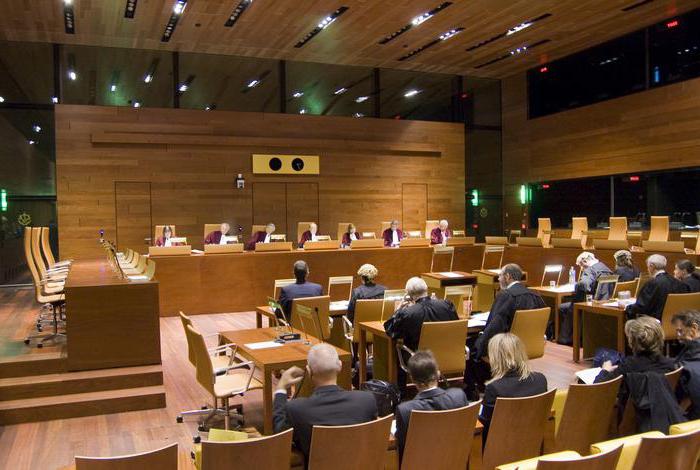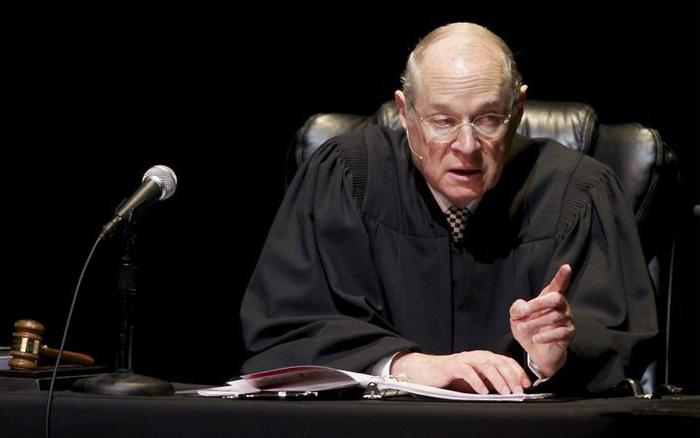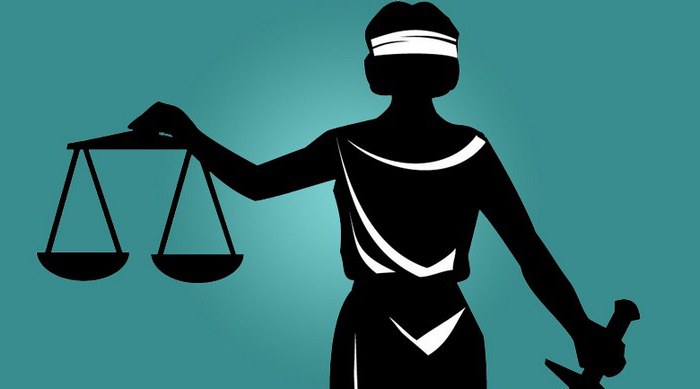Determining the jurisdiction of criminal cases often causes difficulties for participants in the process. Not everyone knows in which body and in what composition of authorized persons the materials should be considered. We will deal with this issue in the article. 
History reference
The concept of jurisdiction in criminal cases, as well as civil ones, cannot be called new for domestic legislation. After conducted in 1922-1924. Reforms over the course of 70 years in the domestic authorities at all levels took place the traditional composition. It was attended by one professional judge and 2 lay judges. In this regard, at that time the issue of the composition of the authorized body did not arise. The jurisdiction of criminal cases acquired its relevance after 1992. At that time, a law was passed allowing for the sole consideration of materials by authorized persons. In 1993, another law was approved, providing for the possibility of forming a trial court in two ways. Three professional judges or one together with 12 jurors could consider the cases. In this regard, today it should be remembered that the category in question is inextricably linked with the composition of the authorized body.
Value
The jurisdiction of criminal cases is determined by the body in which the materials will be examined, and its composition. This is the key prerequisite for the implementation of the principle of completeness, objectivity and comprehensiveness of the resolution of the situation. In this case, ensuring the timeliness of the approval of the final decision (sentence) is far from the last value. The rules on the direction of a criminal case on jurisdiction allow to implement the principles of independence, impartiality, justice. This complies with internationally accepted requirements.
Jurisdiction of criminal cases
It directly depends on the content of the materials in question. The subject of the case shall be established by the qualification of the act of the person brought to justice. You can briefly formulate the principle by which materials are assigned to the jurisdiction of a particular body. The district court shall consider all cases, except those that are within the competence of higher or military institutions authorized to proceed. A decision is solely made on crimes for which the maximum term of imprisonment is less than 5 years. A city (district) court may consider acts as part of one professional official together with two lay assessors. This procedure is provided for crimes for which punishment in the form of imprisonment is more than 5, but less than 15 years. Art. 35-38 Code of Criminal Procedure establishes jurisdiction.
In Art. 36, in particular, specific articles are listed for which crimes are considered by the city, regional, regional authority, as well as by the authorized structure of autonomous okrugs / regions. Art. 37 indicates cases attributed to the jurisdiction of the Armed Forces of the republics, and Art. 38 - RF Armed Forces. Exclusive jurisdiction is established depending on the special social significance or complexity of the crime. These signs are taken into account when appointing hearings in the RF Armed Forces. Today, exclusive jurisdiction is established at the initiative of the Supreme Authorized Body or the Prosecutor General only if there is a petition from the accused. 
Local crime
The territorial jurisdiction of a criminal case is established, as a rule, at the place of commission of the act. If it is unknown (for example, the subject received a bribe in different cities, theft took place in a flying plane), the investigation of the crime is carried out where the investigation is being conducted. This rule applies to cases parsed by the first instance. In these cases, the main issues of guilt / innocence, release from liability or sentencing are resolved.
Matters related to the enforcement of sentences
The jurisdiction of criminal cases is established depending on the content of the problem that needs to be solved. In Art. 368 of the CPC provides a clear indication of the location of the proceedings of specific issues. For example, a decision on pre-trial detention from the correctional colony and replacing the unserved part of the sentence with a milder sanction is decided at the location of the colony. This is because when making a decision, the characteristics of the convicted person during his stay in the penitentiary should be taken into account. They, accordingly, have the administration of the colony.
Verification of the validity and legality of the arrest / extension of its term
The jurisdiction of criminal cases is established at the place of stay of the person in custody. However, it may not in all cases coincide with the place of investigation or the location of the authority where the materials will be examined. The implementation of this rule should be carried out taking into account the requirements that are present in the decision of the Constitutional Court of the Russian Federation. In accordance with it, a complaint about an unjustified arrest can be submitted not only directly to the person who is in custody or his defense counsel to the authority at the place of detention, but also to the subject to whom this measure has been assigned, but has not yet been applied. In determining the court in the latter case, after the adoption of the decision, difficulties began to arise. There may be several options. The transfer of a case to a court may take place at the place of:
- performance of investigative actions;
- the location of the official who issued the arrest order;
- the location of the prosecutor’s office whose employee has authorized;
- the residence of the citizen to whom the arrest must be applied and so on.

Jurisdiction of criminal cases to a justice of the peace
An authorized person reviews materials on:
- Private prosecution of crimes falling under Art. 115, 116, 129 in part 1, Article 130 of the Criminal Code.
- Minor acts, the maximum punishment for which is not more than 2 years in prison. The exceptions are cases listed in Art. 467 Code of Criminal Procedure.
Examination of crimes on the basis of individual characteristics of the accused
Personal jurisdiction is established according to the personality characteristics of the guilty person. As a rule, they take into account his belonging to the category of military personnel, official position or rank. On the first basis, it is established whether the consideration of the case falls within the competence of a military court (jurisdiction is determined). The position or rank of the accused is significant in those cases when it is required to select a specific body from the whole system. A separate problem is the determination of jurisdiction when considering acts committed by the judges themselves.
War crimes
Their jurisdiction and jurisdiction are defined in the Statute of the Tribunals (in Articles 11-20). Its requirements should be applied in practice, taking into account the events that took place in the country after 1991-1992. As before, military courts examine the acts of the RF Armed Forces. Moreover, an explanation of the war crime is not given in the Regulation. There is no definition in other normative acts, including the Criminal Code. A more or less complete picture of the content of a war crime can be obtained after studying several laws. However, not only an employee of the Armed Forces can act as a defendant. In this regard, military courts can consider crimes:
- Against the order of service, which are committed by senior officials correctional facilities type.
- On espionage, committed, including by the military.
- Group nature, if one of the accused is an officer of the Armed Forces.
- Committed in areas where courts of general jurisdiction do not operate due to exceptional circumstances.
Military authorities also consider materials on several crimes, if at least one of them is within their jurisdiction. 
Key factors
Criminal cases that fall under the jurisdiction of the military authorities are subject to jurisdiction at various levels. Specifically, this is set in accordance with several factors. The main of them is the official status and military rank of a person who is held accountable. So, the Statute of the Tribunals determines that:
- Crimes of employees whose military rank is up to the captain of the 2nd rank or lieutenant colonel are considered in the bodies of the flotillas, garrisons, formations and the army.
- Acts committed by colonels or captains of the 1st rank, persons who are in the position of the commander of a vessel of the 1st rank and higher, and entities holding an equal position with them, are examined in the courts of groups and types of troops, fleets and districts.
- Crimes of admirals or generals are considered in the Military Collegium of the RF Armed Forces. She also has jurisdiction for acts committed by commanders of units and employees who are above them in rank.
When establishing a specific body authorized to consider crimes in the military sphere, not only the "individual" factor is taken into account. Of no less importance is the content (subject) of the proceedings. So, crimes that are punishable by death in peacetime should be considered in mid-level courts. Moreover, the official position or title of the accused will not matter. The proceedings of exceptional importance are carried out in the Military Collegium of the RF Armed Forces.
Special cases
As mentioned above, these include crimes committed by judges. The establishment of a specific body authorized to consider such cases is carried out using the relevant standards. In particular, we are talking about the Law regulating the status of judges in the Russian Federation, establishing the inviolability of these persons. A committed crime can be considered directly by the Supreme Court, if requested by the accused. This situation is enshrined in Art. 16, para. 7 of the said Law. 
Transfer of consideration to another body
The procedural law provides for changes in the jurisdiction of criminal cases. In particular, Art. 40 indicates the possibility of consideration of materials by a higher authority, if they fall within the competence of lower institutions. Thus, the former can take any criminal cases in the first instance to trial if the accused requests this. In addition, special rules are specified in Art. 38 Code of Criminal Procedure. In particular, the article allows the unhindered transfer of crimes of special complexity and special social significance to the Armed Forces of the Russian Federation. This can be carried out both on the initiative of the Supreme Body and on the recommendation of the Prosecutor General at the request of the accused.
Art. 44 Code of Criminal Procedure
It establishes the possibility of transferring the case not to a higher authority, but to a body of the same level. However, it is worth noting that the conditions for this movement in the legislation are extremely uncertain. In addition, there are some contradictions with Art. 47, part 1 of the Constitution of the Russian Federation. Art. 44 of the Code of Criminal Procedure allows the transfer of a case in “special cases” for:
- The fastest, most objective and complete review of materials.
- Maximum support for the implementation of the educational function of the trial.
It is not allowed to transfer materials to another body for other reasons. 
Decision on the transfer of proceedings
This action can only be performed by an authorized person.Within a region, territory, republic, or any other constituent entity of the Russian Federation, the chairman of the relevant court (regional, regional, republican, etc.) may decide to transfer the case. As for resolving the issue of transferring materials from an authority of one region to an authorized institution of another entity, this procedure should be coordinated with the chairman of the RF Armed Forces or his deputy. In a similar way, the question of transferring a trial in the military subsystem is being resolved.
At its core, such assumptions are contrary to the Constitution. In these cases, the CPC did not provide for the need to take into account the views of the accused himself. This contradiction is smoothed out in the explanation of the Plenum of the Armed Forces. In particular, it says that if it is impossible to consider a criminal case by that authorized person and in the court to whose jurisdiction it belongs, the chairman of a higher body can move the proceedings to another nearest institution of the same level with mandatory notification of the parties about the reasons for this procedure .
This situation may be due to different circumstances. For example, it arises when it is inadmissible to re-examine the materials by the same judge, by the presence of factors that preclude the particular judge from hearing the case. Thus, the Armed Forces of the Russian Federation directs subordinate bodies to modernize the practice of using the provisions of Art. 44 Code of Criminal Procedure. In this case, the goal is to prevent arbitrary decisions infringing on the rights and interests of the accused. 
rules
The CPC establishes a specific procedure for moving proceedings from one body to another. Such rules are designed to eliminate red tape and delay procedures. So, in the CPC it is established:
- If, prior to the start of the trial, the judge finds that it should be considered in another court, he must redirect the materials to the appropriate authority.
- If the aforementioned circumstance was clarified already during the sessions, then the transfer of the hearing is not necessary if the accused does not insist on it. The entity has such a right by virtue of Art. 47, part 1 of the Constitution.
- If during the trial it turns out that the crime is under the jurisdiction of a military or higher court, it must be sent to the appropriate authority.
- Materials that are considered in a higher authorized institution shall not be sent to a lower one.
- Jurisdictional disputes between courts are not allowed. This requirement is present in Art. 45 Code of Criminal Procedure.
Conclusion
When determining jurisdiction, many factors are taken into account, including those related to the identity of the accused, his position, complexity of the case, and seriousness of the crime. The law provides for the possibility of sending materials to another body for proceedings. However, as the Supreme Court explained, such a procedure should be carried out with mandatory notification of all parties. This indicates the desire of the Supreme Authority to improve the entire justice system. Probably, the issue of revealing the disagreement or consent of the accused to transfer his case, specific procedural actions will be resolved later. Currently, there are gaps in the legislation that create certain difficulties in special cases.
